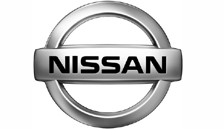Nissan GB expects the fleet market to pick up by 5-10% this year, to around 1.17 million cars and vans, although the recovery is not likely to start until the end of September, according to managing director Paul Willcox.
“Access to funding has freed up and fleets that deferred purchases last year will lead to a more buoyant market,” he told Fleet News.
“The leasing sector will drive the recovery as more businesses look to manage their working capital in a more efficient way by leasing cars rather than buying them.
“There is an issue for smaller fleets where banks are not willing to support them but that’s an opportunity for us to provide the funding.”
Nissan is looking to raise its share of the market from last year’s 3.7% to more than 4% this year, giving it around 38,000 unit sales of cars and 8,000 vans if both sectors improve as predicted (2009: 35,236 cars; 6,709 vans).
It will continue putting emphasis on improving service from its network of 60 business specialists and on reducing wholelife costs by tackling residual values.
Nissan’s exit from short-cycle rental in 2008 has resulted in an average 3% price premium for its own disposals over CAP Black Book figures. It has no plans to return to this sector.
Willcox plans to reduce the number of dealerships that specialise in fleet sales – cars and LCVs – from 60 to around 45 over the next year. He believes this will help its specialists make bigger returns from fleet sales, in turn encouraging them to invest more in the business and their people to improve the service offered to fleets.
“It can’t be a marginal business from them,” Willcox said. “We need dealers that understand the opportunities in fleet and understand the customers’ needs.”
Already 80% of fleet sales go through around 35 business centres. Willcox has also improved the margin structure on fleet sales to raise dealers’ interest. And he has more than doubled the marketing spend this year as he makes fleet sales a major priority for 2010.
Other initiatives intended to reduce complexity and cost for fleets include regionalised service and maintenance pricing (Fleet News, February 18) and centralised billing for aftersales.
“This will take complexity and cost away from the fleet in terms of payment of bills,” Willcox said. “They will have a single point of invoice for a fleet of vehicles instead of lots of dealer invoices. It will be of particular interest to large fleets running cars up and down the country.”
Compare BiK figures and running costs for every new car with the Fleet News car tax calculator - the only calculator that shows costs to your business and to the employee.
















Login to comment
Comments
No comments have been made yet.